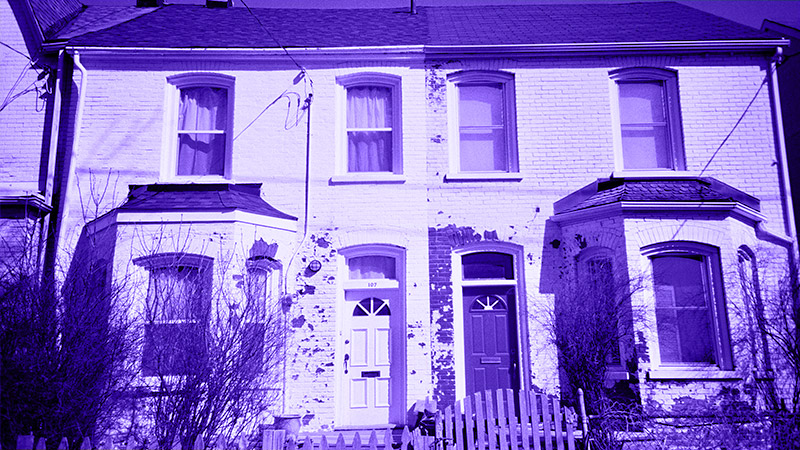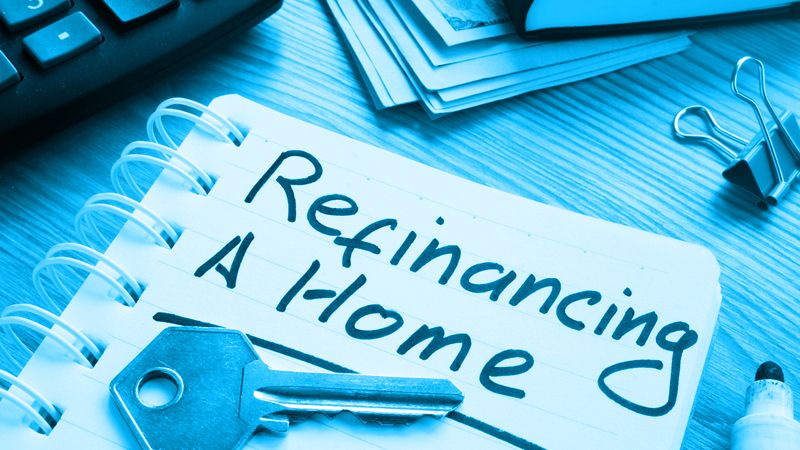According to Statista, mortgage loans in the UK are projected to experience an increase in monthly costs by the 4th quarter of 2024.
This statistic alone may have new homeowners looking at their mortgage deal and wondering if they should try to pay it early or switch to a better deal.
If your financial situation changes, and you want to repay your mortgage early, or if a new property catches your eye, and you want to get rid of your current property, so you can get it, chances are that settling your current mortgage early is on the forefront of your mind.
If you don’t want to continue with your existing mortgage, you can pay it off early or remortgage, but you should know a few things first.
One of the biggest disadvantages of paying your mortgage early or remortgaging is the ERC (early repayment charge) that your current lender will impose on you.
If you’re exiting your mortgage early to save money, you should first take the time to ensure that the ERC won’t negate any expected savings.
To fully understand how it works, you only need to learn more about ERCs and how they work. Then, you can find ways to avoid or minimise it.
Below, we cover everything you need to know before deciding whether repaying your mortgage early is worth it.
What is an ERC?
It isn’t easy to provide a precise figure for an ERC, as each is calculated as a percentage of the remaining mortgage balance.
Usually, ERCs are between 1% and 5% of the mortgage balance.
Sometimes, lenders are more lenient on the percentage, especially if the mortgage deal is already nearing its end.
For instance, if you’re trying to exit your current mortgage deal in the first year, you may have the highest percentage applied of 5%, but if you’re in the fourth year of your mortgage, you may find you’ll have a 1% charge.
Of course, this cannot be guaranteed, as each mortgage lender has its own terms.
What Do Early Repayment Charges Cost on the Average UK Mortgage?
It’s difficult to provide a precise figure for an ERC as each is calculated as a percentage of the remaining mortgage balance.
Usually, ERCs are between 1% and 5% of the mortgage balance.
In some instances, lenders are more lenient on the percentage, especially if the mortgage deal is already nearing its end.
For instance, if you’re trying to exit your current mortgage deal in the first year, you may have the highest percentage applied of 5% but if you’re in the fourth year of your mortgage, you may find you’ll have a 1% charge.
Of course, this cannot be guaranteed, as each mortgage lender has its own terms.
Related mortgage guides:
- What to do if your mortgage expires.
- Disadvantages of paying your mortgage off.
- Best mortgage brokers in the UK.
- Should you pay off your mortgage early?
- 50-year mortgages UK.
When Do ERCs Apply?
Every mortgage has a tie-in period. This is the period of your fixed-rate deal.
ERCs apply during the tie-in period.
Sometimes, depending on your contract, it may extend beyond the tie-in period.
For example, someone on a 2-year fixed rate deal may still face an ERC when switching to another deal within the first 3 years of their mortgage.
It may be disadvantageous to switch to a new deal within your tie-in period, but once that time passes, you may find that switching saves you money.
Another thing to be aware of is that an ERC may also apply to other types of mortgages, including variable-rate mortgages.
You may also have to pay an early repayment charge in the following scenarios:
- You have a lump sum to pay off the mortgage before the mortgage term ends.
- Your mortgage is still in a special-rate period, and you switch to a new mortgage deal.
- You find a better mortgage deal and switch to it before the end of your contract.
- You overpay each month in hopes of paying down your mortgage quicker.
- You can’t move your mortgage to a new property, but you’re moving home.
- Your new property is worth less than your current home, and you wish to transfer your mortgage to the new property.
How Lenders Approach ERCs
Every UK mortgage lender is different, with their own terms and conditions in place.
Some lenders have a flat penalty fee for early repayment, whereas others may apply a certain percentage of the outstanding mortgage amount.
By looking at your mortgage contract, you can determine the specific terms and conditions if you repay your mortgage early.
All the details should be listed in your mortgage contract.
When getting into a mortgage deal, it’s best to inquire directly about the possible fees and penalties if you settle your mortgage early.
Is It Possible to Get a Mortgage with No Early Repayment Charge?
You will find that not all mortgages have an ERC worked into the deal.
For instance, standard variable rate mortgages and tracker mortgages rarely include an ERC.
You may think it’s a great idea to get one of these mortgages but keep in mind that they’re also more expensive than other mortgage types as they come with higher interest rates.
That said, if you think you’ll be repaying your mortgage early or want to have the option of changing to a different mortgage deal during the loan term, these mortgage types may be the most viable option for you.
If you’d prefer to start with a low-interest mortgage with lower monthly instalments, you may want to avoid standard variable rate mortgages and tracker mortgages.
If you’re unsure what type of mortgage is best suited to your financial situation and future plans, discussing the various options with a professional mortgage advisor is in your best interests.
Related reading:
- Reasons for remortgaging.
- Remortgaging to release equity.
- Remortgaging to buy another property.
- Remortgaging with bad credit.
- Remortgaging for home improvements.
- I own my house outright can I remortgage?
- Capital raising mortgages.
Tips for Avoiding Early Repayment Charges on Your UK Mortgage
Everyone hoping to switch mortgage deals or pay off their mortgage early wants to know how to avoid those pesky early repayment charges.
If you check your mortgage contract, you may find that there’s a specific date mentioned when early repayment charges will no longer apply.
If you adhere to this date, there should be no penalty when switching deals or repaying early.
This is just one way of avoiding early repayment charges on your mortgage. Some other ways include:
- Avoid overpaying the agreed mortgage instalment amounts.
- Instead of switching to a new mortgage deal when you move, port your mortgage. First, check with the mortgage lender if they charge fees for porting a mortgage.
- Opt for a mortgage deal that doesn’t impose ERCs. This could be a standard variable rate mortgage or a tracker mortgage.
- Opt to have the ERC added to your new mortgage deal. This is a short-term cash flow fix but isn’t the most financially sound option, as interest will be added to the additional amount.
Is the ERC Worth It?
You may wonder if it’s worth simply going ahead with your plans to exit the mortgage early and pay the early repayment charge.
If the early repayment charge won’t put you in a difficult financial position, it may be worth it.
Also, and quite obviously, if you can save a decent amount of money by changing to a different mortgage deal, it’s certainly worth it.
If you won’t be saving any money and the exit will exhaust your finances, you may want to stick with your current mortgage or wait until the date when the ERC will no longer apply.
Mortgage Early Repayment Conclusion
It can certainly help to discuss the various options with your real estate agent or dedicated mortgage advisor.
Understanding the pros and cons of exiting your existing mortgage early and how ERCs actually work can save you headaches and financial burdens in the future.
Call us today on 01925 906 210 or contact us to speak to one of our friendly advisors.

















